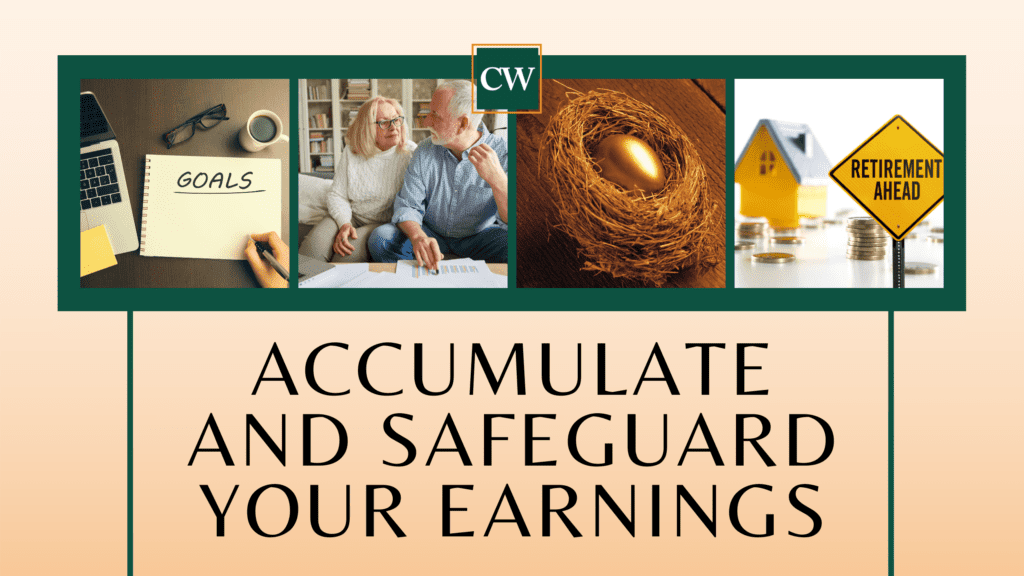LLCs (Limited Liability Companies) are probably still among the most misunderstood vehicles around. I myself did not get a very good grasp until the early years of the 21st century, when I became interested in learning about asset protection, despite pretty much continuously studying financial planning and wealth management since I began with the CFP® way back in 1990. Most folks have at least a rudimentary understanding of corporations, partnerships, and even limited partnerships, but LLCs remain a mystery to many.
What are LLCs?
So let’s spend a little more time talking about what these are. LLC, again, stands for Limited Liability Company.
Two key words: limited liability, which is precisely what we are after in asset protection. We want to limit our liability to little or nothing. This is the major advantage of this company form.
The LLC is basically a partnership that has the limited liability of a corporation.
What are LLC members?
Owners are called “members,” unlike partners for a partnership or shareholders for a corporation. Because of the partnership element, the entity enjoys charging order protection if you pick the right State for jurisdiction. This basically means that if you own the right kind of LLC (more in a moment) and an adversary succeeds in getting a judgment against you, they might get the bank accounts titled just in your name or as JTWROS (joint tenants with rights of survivorship) or even TbyE (tenancy by the entirety) if you wife hits someone in a car titled to you, but can’t force assets out of an LLC to pay it.
Why LLCs are safer than corporations
Moreover, unlike a corporation (business owners take note!), if you are sued, it is very difficult to take your membership interest away. To clarify, if you own shares in Tesla or in your own business, these can easily be lost in a lawsuit.
LLC membership interests, again owing to the partnership roots, are very difficult to take in satisfaction of a lawsuit. So, we are protected from the “outside”—losing the asset protection structure. As important, the “contents” of the LLC—the bank and brokerage accounts you have transferred to it, perhaps, or the tractors you use in your business—are protected from being ripped out in satisfaction of a charging order to pay a judgment. So long as the asset stays in the LLC, it is very well sheltered. Take a distribution from the LLC, of course, and the money’s in your pocket and on the table. However, a little common sense creativity can be utilized to work around this.
LLC flexibility – can you move assets in and out freely?
It is important to stress that the LLC can be utterly your creature—you own, can put assets in or take them out without restriction, and is pretty much invisible when it comes to taxes. It is a very easy creature to live with. My expensive collector car and big boat are very happy in theirs, with equity stripping to other entities to keep you litigious dastardly readers at bay.
LLC multiple members to improve asset protection
For asset protection, in some states (like Florida) it is absolutely essential that you have “multiple members”—more than one owner. This is so due to the partnership aspect of the entity (much as you may wish, you can’t be a partner just with yourself!). Someone else (a spouse, child, or sibling perhaps) needs to own at least a very small interest in the LLC to get the protection. And the rights of this minority member can be virtually nil, but we need multiple members to keep the wealth safe.
LLC operating agreements – follow the complete recipe for better asset protection
It is also vital to have the right “operating agreement.”
This is like a corporation’s bylaws or a partnership agreement, and basically defines how the LLC is structured and what the members’ rights and duties are.
Don’t scrimp – hire a expert attorney for asset protection that works
I cannot stress enough that this needs to be drawn by an attorney quite familiar with asset protection if it is going to work! In my humble, non-lawyerly, experience most are not! And don’t know it! Please, no online forms, or Office Depot kits. Most CPAs and attorneys in my considerable experience miss the mark on this. But getting it right is absolutely critical if your asset protection plan is going to work if and when a threat darkens your financial door.
LLCs, of course, have broad applications as business structures, and while a treatment of business applications is well beyond the scope of this already too-long blog post, we will touch on a few of the more important business aspects below.
LLCs as asset protected family holding companies
Virtually all readers, business owners and not, should consider using LLCs as personal holding companies for liquid assets like bank, brokerage, and mutual fund accounts. Follow the points regarding ownership, operating agreement, and so on above.
Keep assets siloed for effective asset protection
And do NOT mix these assets in the same LLC with those (like operating businesses or real estate) that might incur liabilities that could be satisfied with your liquid accounts.
Got a million in the same LLC as the balloon company? The million may crash with the passengers in the hot air balloon.
Keep them separate, and safe!
Put your riskier assets in their own LLCs; typically each business should be encapsulated in its own LLC.
Some real estate investors put each property in its own LLC, others group bunches of properties in separate LLCs—commercial in one, residential in another and so on, and deal with the property risk primarily with liability insurance.
Keeping up with multiple LLCs
Having a lot of LLCs can become a chore to keep up with, so this becomes a balancing act between protection and practicality. Smart practitioners can minimize the needed number of tax returns, which is really smart.
Most experts recommend one master LLC and one tax return in a variation of the Delaware Serial LLC concept. And note that if properties are mortgaged, any attachment in judgment is subject to any mortgage, making (perhaps depending on equity) these assets less attractive to satisfy a judgment. The mortgage acts as a poison pill. Properties with minimal equity need minimal asset protection, but keep an eye out as you pay them down.
Protecting your business – convert your corporation to an LLC
As mentioned above, it is much harder for a plaintiff to take membership interests in the right LLCs than for a stock in an S or C corporation. This is a major advantage that is not used by far too many business owners! If you are one, please take note.
To summarize, both LLCs and corporations protect your personal assets from attacks on the business. I call this a bottom up attack. If your employee shoves a customer in a pizza oven, they can sue the pizza shop corp but not get to your personal bank accounts – unless you helped push!
Protecting your assets from top-down attacks
But only proper LLCs protect the loss of your business from attacks on you: top down attacks. If you are liable in an auto accident for which an award exceeds your insurance, assets held in your name (including your incorporated business) could be lost to satisfy it.
LLCs are much, much harder to crack, and this is the reason you have seen so many of them in the past few decades. Now you know why. Did I mention only the right LLCs work for this and most we’ve seen are worthless as asset protection?
LLCs and taxes – you get to pick the tax treatment with check-the-box
From a tax perspective, LLCs are pretty invisible, and you can choose—by checking a box on the IRS form—to be taxed as a partnership, S-corp, or C-corp. Just don’t choose sole proprietorship, because that would mean a single member LLC and the asset protection would be lost. It also raises needless IRS red flags.
For those business owners who consider converting corporations or partnerships to LLCs (and all should consider this), make sure you run it by your tax advisor to make sure this would not trigger capital gains recognition, which might be bad.
Even where this is the case, you may have other options to improve asset protection, such as perhaps having the corporation be acquired by a new LLC you set up.




